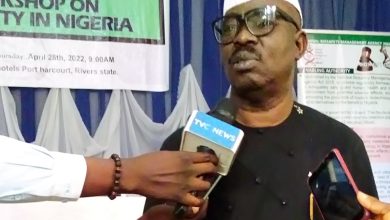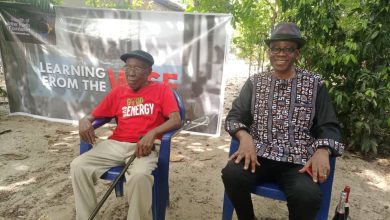As centralised policing fails, South-South leaders consider alternative models

As kidnapping, banditry, armed robbery and other social vices have continued to threaten communities and states in the South-South like Cross River, Rivers, Edo, Delta, Akwa Ibom, and Bayelsa are thinking of how to deal with the situation. The borderless creeks are porous and difficult to police, giving the pirates and other criminal elements a field day to operate unhindered. Besides, the Federal Government’s centralised police force has increasingly become helpless in the face of pervasive insecurity.
It has become a huge “business” and it continues to boom. An average of two persons are kidnapped on a daily basis in Cross River State and many traders have relocated elsewhere while others have threatened to leave town if nothing urgent is done by the state government to protect life and property.
The situation has elicited agitations for the establishment of State Police or Community Police or Neighbourhood Watch away from the centralised one that is failing to address spate of insecurity. Others, however, argue otherwise, saying the current arrangement best serves the country’s security needs.
Cross River State Governor, Senator Ben Ayade had, way back in May 26, 2016, inaugurated the Green Police with 1,500 personnel with 25 pickup trucks handed over to the force. He had unveiled Cadet Cadre and empowered them with 10 branded official fast cars to commence work.
Apparently, this did not go down well with the Nigeria Police, as the then State Commissioner of Police, Mr. Jimoh Obi-Ozeh, said, “the Green Police will be clamped down on if they are seen operating in the state. It is a breach of the Constitution of the Federal Republic of Nigeria. According to Section 214 of the 1999 Constitution of the Federal Republic of Nigeria, amended 2011, there shall be a Police Force for Nigeria, which shall be known as the Nigerian Police Force and, subject to the provisions of this section, no other police force shall be established.”
With the pressure from the central police authority, the state abandoned Green Police and changed the name to Green Sheriff. But this organisation is only on paper, with some customised vehicles being used by a joint patrol team of the police, army and navy occasionally. Outside this, the group is not really visible or effective.
Faced with embarrassing cases of daily kidnappings, Ayade, during his 2021 budget presentation recently, stated that emphasis would be placed on the people and security as “the budget has a provision for establishment of Neighbourhood Security Watch, which will deal with neighbourhood protection and also create a lot of jobs for graduates and non-graduates alike.”
Top sources in government said, “branded new patrol vehicles have been donated to the State Police Command and Command and Control Centres will be created. The state needs tracking system to track minute by minute. There is need for intelligence support from members of the public, as policemen are not spirits. And to make things difficult, we have about 250 sea routes in and out of Calabar. Hence, there is great need for the Neighbourhood Watch and it will be lunched soon… From December we will see new Cross River in terms of security.”
U.S.-based Sheriff investigator and law enforcement expert, Mr. Felix Asuquo, who called on the state governor to urgently address insecurity in the state or resign, gave a panacea and explained the need for neighbourhood policing.
He told The Guardian; “Nigeria with over 200 million people living in 36 states and 774 local government areas cannot get adequate security from a police force that is under-staffed, under-paid and lacks adequate technical know-how to combat crime in a country that is largely made up of urban cities. Like it is already happening in the Southwest, where some regional policing system called “Amotekun” has been created, which from reports is beginning to record successes in policing, especially in the fight against dreaded groups, it is therefore a clear indication without a doubt that regional or state police will be advantageous in the fight against insecurity in the South-South states.”
He also made the following recommendations.
“Immediate solutions will include proper funding of local police systems in respective states to boost officers’ morale and presence in security hot spots. Police presence should not necessarily mean setting up roadblocks or adopting a stop and frisk policy; but will be more of manpower capacity where officers can properly engage locals towards security stability, efficient radio communication, and re-equipping the police vehicles with high-tech emergency systems, and adequate impresses to fuel these vehicles during crisis times in order to keep them running round the clock.
“State governments and corporate organisations can also fund independent bodies to foster surveillance and investigative solutions in the fight against insecurity. With intelligence sharing taken seriously, some of these solutions will include using drones and establishing security cameras and gunshot detectors around densely populated areas and noted crime hot spots. These independent organisations will be responsible in providing information to appropriate law enforcement authorities to assist in the fight against crime, boost security, and help restore law and order in regional communities.”
Similarly, a Calabar-based senior legal practitioner, Mr. Etim ínyang, said, “on the issue of state police, I submit that we are not ripe for it because of over-politisation of our security and the likelihood of abuse by the governors, as the case in states’ electoral commissions indicate. If state police is allowed, then there will be anarchy in our society. What we need is community policing, decentralization of the Nigeria Police Force and proper funding of the police. To prove that the system of state police will be abused, why is it that only those in opposition today are asking for it, contrary to their position while in power?”
On Neighborhood Watch proposition as alternative system, Inyang said; “If the group is to be unarmed, then the states can go ahead without approval from the Federal Government, but how effective such group will be is a question for another day… By the provision of Section 11 of the Constitution of the Federal Republic of Nigeria 1999 (as amended), public order and public security is within the power of the National Assembly and not shared with states. And Section 217 of the Constitution provides for Establishment and Composition of the armed forces, but this power resides with the National Assembly. Also Section 218 of the Constitution provides for command and operational use of armed forces, and such power is with the president.
“Moreover, the issue of security is in the exclusive list and therefore the states can’t make laws on the subject matter. When the Southwest came out with the regional security, I raised alarm and disagreed with the governors of the region because even at the point of the pronouncement of the establishment of the security outfit, there was no enabling law.
“The way forward is to reorganise our police force to world’s best practices with training and funding as cardinal programmes… Also, discipline must be restored back to our police force and corruption and nepotism must be tackled. Finally, community policing is the way forward.”
Also, traditional rulers in Cross River State have taken recourse to the spiritual in efforts to combat kidnapping. With effect from December 1, 2020, the monarchs commenced invoking native sanctions (mbiam) on would-be kidnappers to check their activities and related vices in the state.
They said for quite sometime now, the state has been embroiled in incessant incidents of kidnapping, abduction, armed robbery and clashes among rival cult gangs. This has led to looting and brigandage that continue to impede social and economic activities.

Chairman of the state’s Traditional Rulers Council, His Royal Majesty Etinyin Etim Okon Edet, in a statement made available to newsmen in Calabar, said the native invocation (mbiam) “is intended to serve as deterrent against the perpetrators of kidnapping, armed robbery, cultism and other vices which have been disturbing the peaceful residents in the state.
“The traditional rites to be performed by the monarchs and chief priests, started from Calabar with subsequent coverage of the entire local government areas in the state. The option is as a result of the continuous violation of public peace in the aftermath of the #ENDSARS protests and other security challenges confronting the hitherto peaceful residents of the state.”
The implication of this traditional curse or sanction is that anyone who is involved in kidnapping, robbery or related vices will suddenly be attacked by strange sicknesses, which may lead to death if confession is not made for necessary atonement.
IN Rivers State the story is not different. The state governor, Nyesom Wike, while presenting his keynote address at the 3rd Annual Nigerian Criminal Law Review Conference in Abuja recently, organised by Rule of Law Development Foundation, observed that while the establishment of state police may require amendment of the extant Section 214(1) of the 1999 Constitution to provide for state police, community police or neighbourhood watch could be established without constitutional amendment. He said the prevailing cases of kidnapping, banditry and armed robbery, which now threaten the stability of the country clearly justify the establishment of State or Community Police.
He said, “the truth of the matter is that with the current strength of the Nigeria Police Force, which stands at about 372,000, the Nigeria Police Force lacks the operational capacity to fulfill its primary or core mandate of crime detection, crime prevention and maintenance of public safety, law and order or protection of lives and property of persons in Nigeria.
“To put it plainly, the Nigeria Police lacks the operational capacity to police the nation which is a federation of about 923.768km (356.669 sqm) with an estimated population of 195.9 million. It is this stark reality that informs the call for the establishment of State Police to provide a complementary role to the Nigeria Police Force in crime detection, prevention, and maintenance of law and order.”
Wike explained that it was against this background that the Rivers State Government enacted the Rivers State Neighbourhood Safety Corps Law, No. 8 of 2018 which establishes the Rivers State Neighbourhood Safety Corps Agency as a corporate body and vested with powers to establish uniformed Neighbourhood Safety Corps in the 23 local government areas of the state and to prescribe regulations guiding the operations of the Safety Corps and any other local government vigilante group in the state.
He stated that recruitment and training of members of the uninformed Neighbourhood Safety Corps commenced at the NYSC Orientation Camp, Nonwa in Tai LGA, after obtaining all necessary approvals from the Nigerian Army and other relevant security agencies. But unfortunately, the exercise was violently disrupted by the Nigerian Army, claiming that it was illegal and unconstitutional.
Governor Wike said despite court ruling that upheld the constitutionality of the Rivers State Neighbourhood Safety Corps, the Nigerian Army refused to allow it carry out its recruitment and training of personnel.
According to Wike, “The point being made here is that as long as the Federal Government continues to politicise issues of security, whether national or local, so long shall our criminal justice system remain seriously jeopardised. The suzerain power exercisable by the Federal Government over matters of security is made manifest by the irregular postings of Commissioners of Police to the Rivers State Police Command.”
The Federal Government did not give the local security outfit (Neigbourhood Watch) permits to bear arms, so all attempts to make it work were dashed. But with the launch of ‘Operation Sting’, which was fully funded by the state government and dedicated to integrated and complementary approach to tackling the sources and drivers of insecurity, the state has witnessed relative reduction in crimes.
AS part of efforts to combat crime in Edo State, the state governor, Mr. Godwin Obaseki and the Inspector General of Police, Adamu Mohammed, have assured Edo residents of improved security, urging the people to collaborate with the security agencies to help in combating crime. Obaseki gave the assurance when receiving Mohammed, who was on a working visit to Edo State to inspect the destruction of police facilities following the hijack of the #ENDSARS protests.
Obaseki, who is in favour of community policing, said the state government would continue to support the police to perform its responsibility of protecting lives and property. The governor said the logic and rationale for community policing would be supported by Edo people, adding that policing should be owned by the community, driven by intelligence-gathering and actively supported by the beneficiaries.
“It’s unfortunate that the #ENDSARS protests degenerated to the extent it did,” Obaseki said. “What happened in Edo State was beyond the protests as hoodlums hijacked the process, broke into correctional facilities and caused destruction of property.”
Obaseki, who recounted the many benefits of community policing and the need for religious bodies, communities and other stakeholders to join hands with the government to ensure the success of the state’s Community Policing initiative so as to ensure safety in communities, said, “We must now adopt new security plans in our religious centres, schools and communities.
“We, as a state, will be investing in our intelligence-gathering system. We know that citizens may not trust the information they give out to some agencies. But we are putting up a system where we will make you trust us when you give us information. We will make sure that the information is acted upon. We have completed a design of our own correctional facility and will start building it.
“We are going to try to reduce our lamentations and do things for ourselves and that way, we would have started the process of restructuring the country. There is nobody who is more concerned about the current security situation in our state than I am.”
Obaseki, at the graduating ceremony of 877 Special Constables under the Community Policing project of the Nigeria Police Force in the state, said that the Special Constables under the Community Policing scheme in Edo State would be given life insurance policies.
The governor explained that the 877 Special Constables were trained at the Police Training School, Ogida, Benin City, to strengthen the Edo State Police Command in the area of Community Policing.





